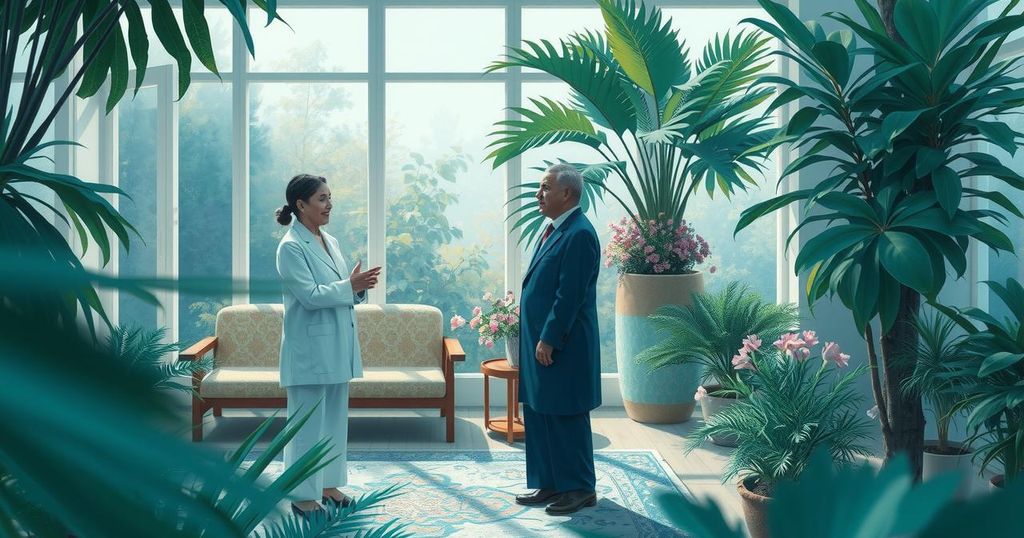Rwandan and DRC presidents met in Qatar to discuss the eastern Congolese conflict involving the M23 rebel group. They agreed on an immediate ceasefire, despite M23’s absence. A direct peace dialogue in Angola was canceled due to M23’s withdrawal after EU sanctions. Tensions persist with significant displacement and casualties reported amid ongoing instability in eastern DRC.
On March 18, Rwandan President Paul Kagame and Democratic Republic of Congo (DRC) President Félix Tshisekedi convened in Qatar to discuss the ongoing conflict in eastern Congo, specifically the actions of the Rwandan-backed rebel group, March 23 Movement (M23). Although M23 representatives were absent, both leaders emphasized their commitment to achieving an immediate and unconditional ceasefire in a joint statement issued post-meeting, facilitated by Qatari Emir Tamim bin Hamad Al Thani.
This meeting coincided with a planned peace dialogue in Angola, which was unfortunately canceled after M23 withdrew following recent European Union sanctions imposed on their leaders. The leaders acknowledged the necessity to pursue the discussions initiated in Doha to establish a sustainable peace framework.
Kagame and Tshisekedi had intended to further engage at a peace summit on December 15, 2024, stemming from a ceasefire agreement established in Luanda on July 30, 2024, but which faced disruptions from resumed hostilities. Disagreements over M23’s inclusion in negotiations delayed the summit, with Rwanda advocating for participation while the DRC opposed it.
Angola’s Foreign Affairs Ministry later stated that the anticipated dialogue could not proceed “due to reasons and circumstances of force majeure” stemming from M23’s exit linked to EU sanctions. The Congo River Alliance (AFC), correlating with M23, expressed disappointment, alleging that certain international bodies are hindering peace initiatives.
M23, recognized as the conflict’s primary force and supported by Rwanda, exercises control over key cities in North and South Kivu, regions rich in vital minerals for technology. As the situation has intensified since January, UN reports indicate over 850,000 individuals displaced in South Kivu alone and over 8,500 casualties linked to fights around Goma.
Since the conflict erupted in 1998, eastern DRC has been marred by violence involving numerous militias and government forces despite ongoing UN peacekeeping efforts. The M23, largely composed of Tutsi members impacted by the 1994 Rwandan genocide, resumed aggressive actions against Congolese forces in late 2021, raising concerns for broader regional conflicts.
The recent meeting between Kagame and Tshisekedi emphasizes the urgency of resolving the conflict involving M23 in eastern DRC. Despite the lack of dialogue success and the standstill created by EU sanctions, both leaders reaffirm their commitment to peace. Continued tensions and military actions underline the complexity of the conflict, reinforcing the need for concerted international efforts to facilitate resolution and restoration of stability in the affected regions.
Original Source: efe.com






